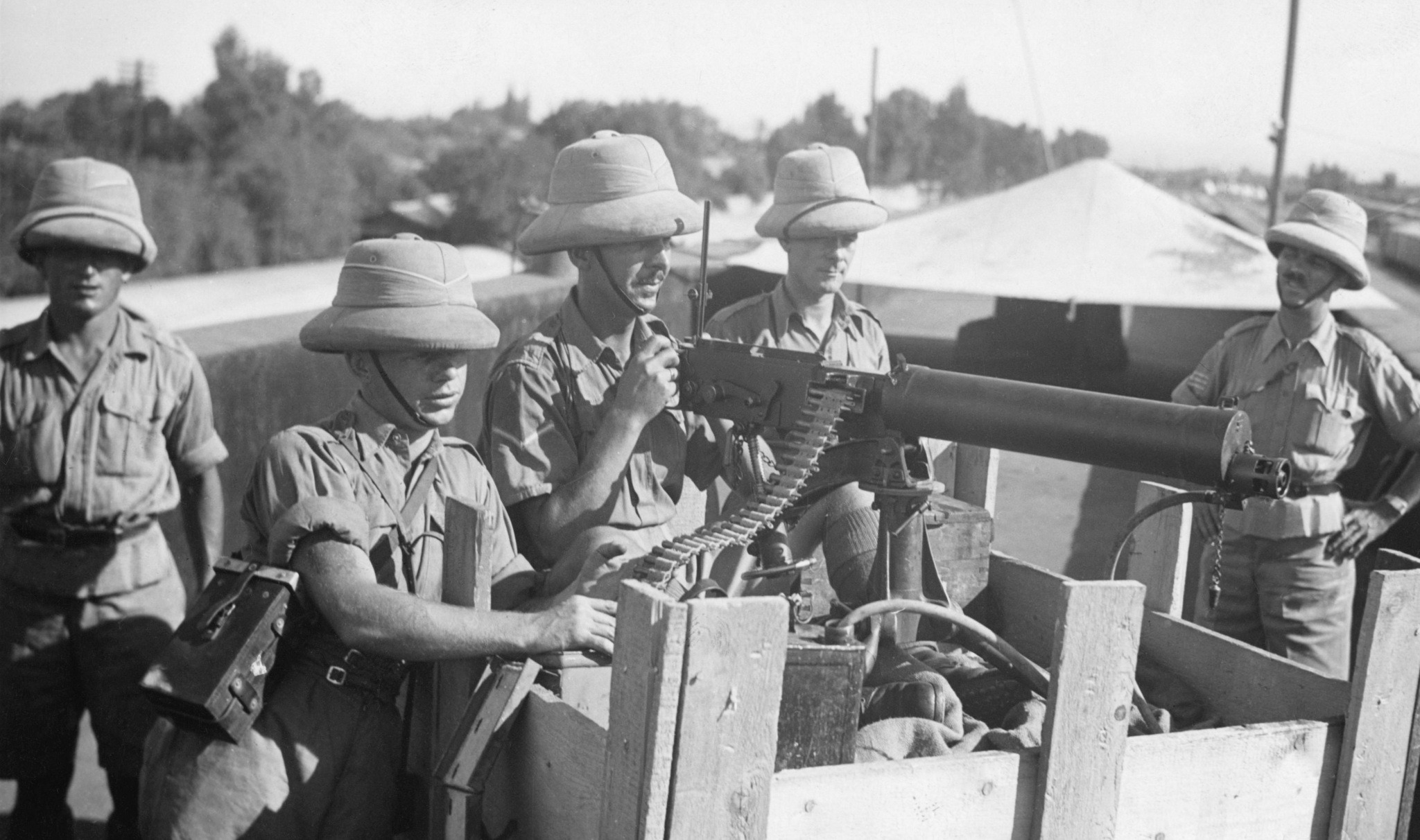________
Source: Declassified UK
Israel's Brutality Against Palestinians Draws On British Rule
Britain's "mandate" over Palestine from 1920-48 left an apparatus of repression which Israel inherited and still uses today in its ferocious war on Palestinians.
Source: Declassified UK
Israel's Brutality Against Palestinians Draws On British Rule
Britain's "mandate" over Palestine from 1920-48 left an apparatus of repression which Israel inherited and still uses today in its ferocious war on Palestinians.
British soldiers in Palestine during the Arab revolt, 1936. (Photo: SZ via Alamy)
May 7, 2024
Israel's present use of collective punishment against Palestinians owes much of its origins to British rule in Palestine.
So too do the aerial bombardments, military raids, use of Palestinian civilians as human shields and the infrastructure of military law deployed against an occupied, overwhelmingly civilian population.
Britain ruled Palestine during its "mandate" between 1920-48, and its repressive infrastructure came into full force during the 1936-39 Great Arab Revolt.
In 1936, Palestine erupted into a national uprising following two decades of peaceful resistance against British rule and several failed uprisings over the 1920s, as the political and economic situation became dire for the Arab majority.
The uprising called for an end to British support for Zionist colonisation and a guarantee of Palestinian self-determination. Britain, however, saw it as a threat to its rule and responded with brutal repression. By the end of the revolt, 10 percent of the adult male Arab population were either killed, wounded, imprisoned or exiled by the British.
This brought the revolt to an end but also devastated Palestinian society and left it defenceless against Zionist militia groups during the 1948 Nakba (catastrophe). Then, over two-thirds of the Palestinian people were ethnically cleansed from their country to establish the State of Israel.
Palestinian historian Rashid Khalidi has argued that the armed suppression of Arab resistance during the revolt was among the most valuable services Britain provided to the Zionist movement.
Read more: When Britain Aided Israel's 'Ethnic Cleansing' Of Palestine
Martial law
To crush the revolt, Britain brought Palestine under martial law, building on counterinsurgency tactics it had refined in other colonies like Ireland and India.
As historian Matthew Hughes explains, in response to the 1936 uprising British authorities renewed local laws enacted during the 1920s, referring to them as "emergency laws", to impose collective punishment against Palestinians.
Please go to Declassified UK to continue reading and help support their investigative journalism.
________
Israel's present use of collective punishment against Palestinians owes much of its origins to British rule in Palestine.
So too do the aerial bombardments, military raids, use of Palestinian civilians as human shields and the infrastructure of military law deployed against an occupied, overwhelmingly civilian population.
Britain ruled Palestine during its "mandate" between 1920-48, and its repressive infrastructure came into full force during the 1936-39 Great Arab Revolt.
In 1936, Palestine erupted into a national uprising following two decades of peaceful resistance against British rule and several failed uprisings over the 1920s, as the political and economic situation became dire for the Arab majority.
The uprising called for an end to British support for Zionist colonisation and a guarantee of Palestinian self-determination. Britain, however, saw it as a threat to its rule and responded with brutal repression. By the end of the revolt, 10 percent of the adult male Arab population were either killed, wounded, imprisoned or exiled by the British.
This brought the revolt to an end but also devastated Palestinian society and left it defenceless against Zionist militia groups during the 1948 Nakba (catastrophe). Then, over two-thirds of the Palestinian people were ethnically cleansed from their country to establish the State of Israel.
Palestinian historian Rashid Khalidi has argued that the armed suppression of Arab resistance during the revolt was among the most valuable services Britain provided to the Zionist movement.
Read more: When Britain Aided Israel's 'Ethnic Cleansing' Of Palestine
Martial law
To crush the revolt, Britain brought Palestine under martial law, building on counterinsurgency tactics it had refined in other colonies like Ireland and India.
As historian Matthew Hughes explains, in response to the 1936 uprising British authorities renewed local laws enacted during the 1920s, referring to them as "emergency laws", to impose collective punishment against Palestinians.
"Britain enforced collective punishment against the entire population"This allowed the mandate government to impose curfews, censor written materials, occupy buildings, as well as arrest, imprison and deport individuals without trial while suspending the right to counsel, policies Israel still enforces against Palestinians today.
Please go to Declassified UK to continue reading and help support their investigative journalism.
________
Who cares. Kill everyone. And there is nothing that will stop or slow this down:
What can possibly explain this? More weapon development. More destruction. More fear. More death and it just continues unabated:
American political leadership are all British (Israel) assets:
We get another look at who rules America as the mask comes off:
The entire central banking infrastructure is based on war, destruction and death:

No comments:
Post a Comment
Note: Only a member of this blog may post a comment.